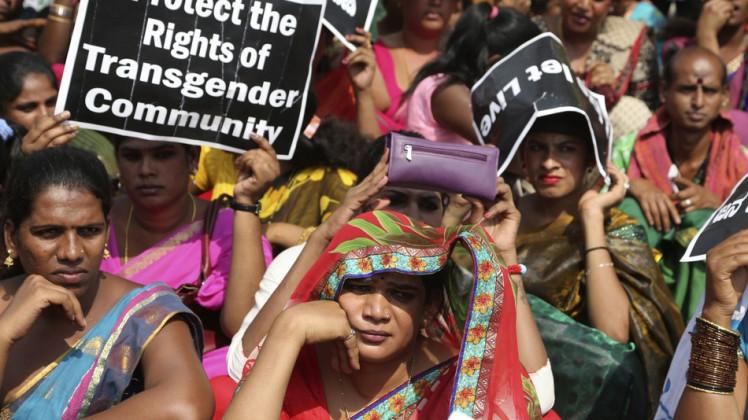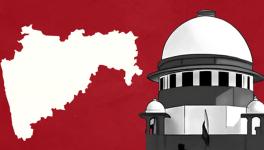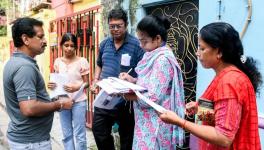Draft Rules for Transgender Act Threaten to Undo NALSA Judgement

Representational Image. Image Courtesy: Counterview.Org
On April 18, while the whole country was under a lockdown to prevent the spread of the novel coronavirus, the Union Ministry of Social Justice and Empowerment uploaded on its website the draft rules for the Transgender Persons (Protection of Rights) Act. Responses from the public are to be received by April 30.
The Act had been passed in December 2019, after the 2014 NALSA (National Legal Services Authority of India) judgment by the Supreme Court upheld the dignity of the transgender community and granted to them the status of a third gender that was backward and marginalised, in need of special protection. The fact that the Act took so long to pass after the 2014 judgment is significant in itself.
Delivering the NALSA verdict, the Supreme Court held that people who did not identify with the gender they were born with had existed in the ancient past too, and the epics feature such characters. Although members of the transgender community played prominent roles in society, colonial rule saw them classified under the Criminal Tribes Act of 1871 that provided for registration and surveillance, even arrest without warrant. Dancing or playing music in a public place could be reason for arrest. They were suspected of kidnapping and castrating children.
The NALSA judgment quoted extensively from what have come to be called the “Yogyakarta principles”, which were agreed upon in November 2006 by a distinguished global group of human rights activists who met in Yogyakarta, Indonesia: “The Right to the Universal Enjoyment of Human Rights: All human beings are born free and equal in dignity and rights. Human beings of all sexual orientations and gender identities are entitled to the full enjoyment of all human rights.”
What is noteworthy is that although the judgment came out in 2014, the Act seeking protection of the rights of the transgendered was only passed by Parliament in December 2019. The judgment called for immediate implementation of social welfare schemes and proper access to healthcare, given the relatively higher prevalence of HIV in transgender population. It ordered the government to offer free gender transition services to the group, at healthcare facilities. It sought longer term public welfare measures to educate the public and promote accurate knowledge about transgender people, while also offering them housing and job opportunities.
“Ensure greater involvement of vulnerable communities including Hijras/TG women in policy formulation and program development,” the judgment said. It noted that female to male transgender persons are not visible in India, even though they too face discrimination.
Read Also: Transgender Bill: Denying Constitutional Rights to the Community?
In January this year, a month after the Act was passed, a petition was taken to the Supreme Court by Assam’s first transgender judge, Swati Baruah, arguing that several provisions in the Act went against the dignity of the transgender people.
The Supreme Court in its 2014 ruling stated: “The question whether transgenderism is a disease is hotly debated in the both the transgender and medical-psychiatric communities. But a prevalent view regarding this is that transgenderism is not a disease at all, but a benign normal variant of the human experience, akin to left-handedness.”
The Act granted a right to self-perceived gender identification and said the person can apply to district magistrate for an identification document that certifies such status. The rules proposed for the Act, however, seek for consultation with a psychologist too.
The Act also provides for minimal punishment – imprisonment for just six months for those endangering the life of a transgender person, for instance. It does not provide for reservation in education and jobs for the third gender, as earlier envisaged by the SC judgment.
As the country went into lockdown mode to prevent the spread of the novel coronavirus, there were reports that people suddenly left jobless and without an income were on the verge of starvation. Over 100 cases of suicide have been reported to be caused by distress during the lockdown period, which began on March 25.
As India’s poorest and most vulnerable – among them transgender people – struggle to make ends meet in this difficult time, activists wonder that the government expects responses on the draft rules by April 30.
Ravie Kiran, who has worked for the rights of the lesbian, gay, bisexual and transgender groups, said: “There are other things that are the priority now, like arranging food and shelter. There are transgender sex workers suddenly stranded with no income or rations. Why was this draft released at this time, and with such a short deadline? If the government was really so keen on notifying the rules early, it could have circulated a video in the local languages for people who will be affected to understand and express their opinions. The draft is in English and available online. How many members of the transgender community will even know such a thing exists? Has democracy died?”
In the normal course, for public consultations of draft policy, a time of at least 30 days is allowed for responses.
Arun PS, who runs a website that tracks all government policy drafts and the process of public consultation, said: “Several important policy drafts have been circulated while the country was in lockdown. The draft Environment Impact Assessment notification has provisions that go against the protection of the environment. Bringing it out in the midst of a national crisis is not exactly in the interests of upholding democratic procedure. The draft rules for Transgender Persons Act will probably not get the attention of the people it is meant for, at a time like this. These are worrying – because this cannot be mere oversight; it seems like keeping the people in the dark is government strategy.”
The writer is a freelance journalist. This report emerged from studies conducted as part of the 'Reclaiming the right to privacy fellowship' offered by the Centre for Internet and Society.
Get the latest reports & analysis with people's perspective on Protests, movements & deep analytical videos, discussions of the current affairs in your Telegram app. Subscribe to NewsClick's Telegram channel & get Real-Time updates on stories, as they get published on our website.
























